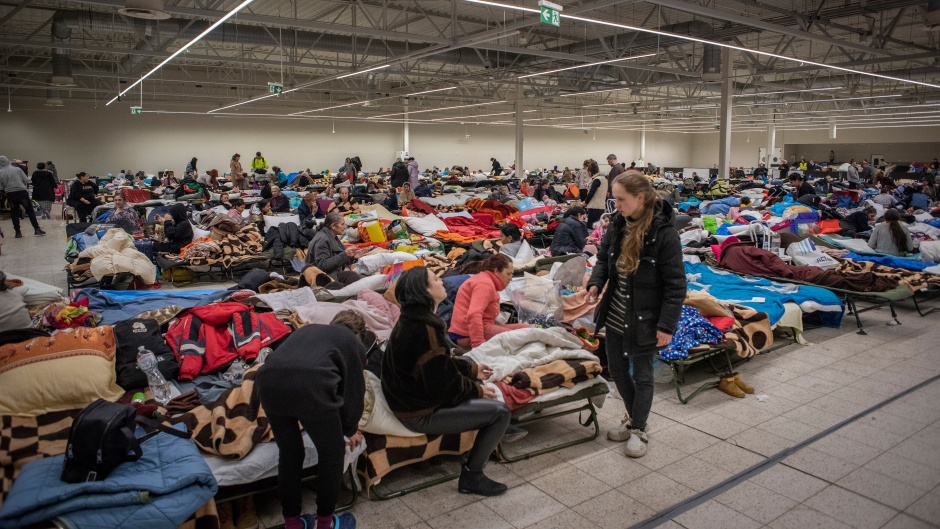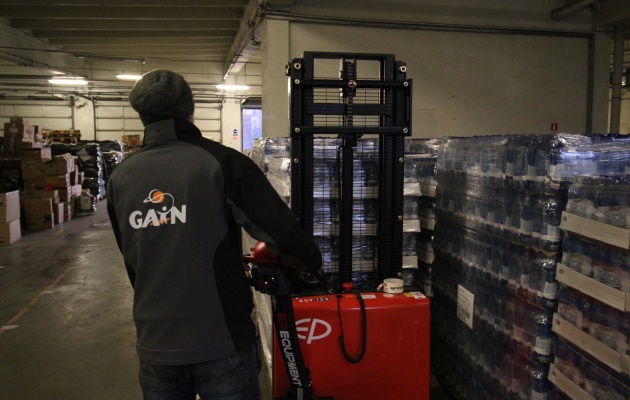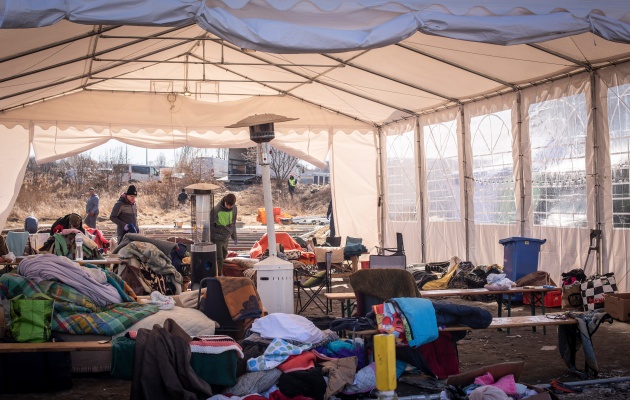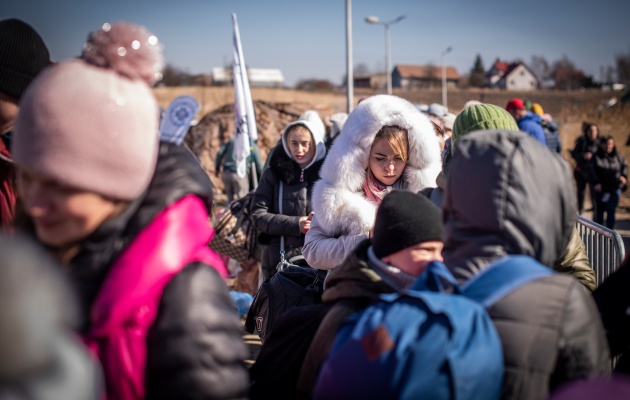War in Ukraine: How to help and what mistakes to avoid
How can we make sure that aid will be useful for Ukrainian refugees? Miqueas Forster of GAiN Spain answers this and other questions.
17 MARCH 2022 · 12:30 CET

The war in Ukraine has already forced over 3 million people to flee the country. There are all kinds of reactions of solidarity throughout Europe.
But how can we help well? What should we consider as we give? How can we avoid mistakes?
Evangelical Focus spoke to Miqueas Forster, director in Spain of GAiN, a European Christian NGO with experience in places like Lesbos (Greece) or Haiti.
Before the current Russian invasion, this organisation was already sending more than 50 trucks of humanitarian aid a year to Ukraine, and this has enabled them to react quickly now.

Question. You have been able to cross into Ukraine in the last few days. How easy or difficult is it to enter the country?
Answer. It is quite complex. In fact, the initial plan was only to provide aid to people arriving at the borders with Poland, Moldova, Hungary and Romania. But after a few days working in Poland, our colleagues from GAiN Germany found an access point through which they saw it was possible to enter, and since then we have already brought in 7 trucks with humanitarian aid.
On this last trip, for example, the team had to wait up to 12 hours at the border between going and coming back. There are exhaustive access controls, the truck must be well identified for security reasons, and the more contacts the better, both at customs and inside the country, in order to have immediate information about possible risks along the way.
Q. Some people might want to fill a van with materials and just travel to the Ukrainian border without a clear plan. Is this a good idea?
A. Absolutely not. Trucks and vans are constantly arriving in border towns in Poland, such as Przemyśl, without any plan or any contact. What they do is just unload the aid anywhere they can and go back to their country of origin. That aid, if there is luck, is organised by teams of local volunteers in the city, but it often ends up spoiling and creating more problems than solutions.
Even local volunteers are often overwhelmed by having to manage unanticipated, disorganised and unfiltered aid that often does not respond to a need at the time.
It's great that people want to help, but as we usually say in GAiN, apart from the heart, you also need to use your head.

Q. Thinking about churches or individuals, what is better: giving money, products or both?
A. Both can be useful and necessary, as long as there is a clear plan. I would say that before deciding how to help, it is important to decide with whom you are going to collaborate. Once you have decided the entity where you want to give your contribution, find out what they need, because depending on the action plan they have, they will need money, products or both.
If they need products, it is important to first find out what specific products they are collecting. The donation of goods could consume the resources and energy of the NGOs that receive them.
It is also good to ask NGOs about that specific action plan: where, how and through whom is the aid distributed? This can help us to understand whether the organisation we want to collaborate with is going to make good use of our resources.
Q. You have worked with public authorities at borders such as the Polish one. What do they need? What do they not need?
A. In Poland, the local authorities asked us to buy folding beds and mattresses for a reception centre they had set up for around 1,000 people. But they specifically asked us to buy them in our countries, not in Poland, because the amounts were so large that they could cause a supply problem there.
Other products that they urgently need now are food (such as baby food, energy bars, etc.), sleeping bags, hygiene products and water. But again, it is important to check with NGOs before donating. Some of these products are often needed in large amounts and it is better to get them directly from businesses.
Products that are not needed as much are, for example, clothes. But it depends very much on the place and the entity organising the aid. It even depends on the time, because the needs change over time.

Q. There is a strong wave of solidarity with Ukraine now. How can we make sure that this aid will continue to arrive in the coming months or years?
A. That is the challenge ahead of us. Right now we are trying to mobilise as many people as possible to help. On the one hand, because the need is overwhelming, but on the other hand because we also know that in a while this humanitarian crisis may cease to be in the spotlight and it will be more difficult to obtain the resources to meet the needs that may arise.
It is an educational work that we have to do little by little. The humanitarian need that this war will bring about is going to last a long time. We cannot forget that our commitment is long-term.
Q. What else would you recommend to avoid at a time like this?
A. As in any other humanitarian crisis, we should try to avoid the “saviour syndrome”. We are not the saviours or the protagonists of this story. We must help with humility and unconditional love. This means that we must add up in the most effective and relevant way for the people being helped, not in the way that makes us feel most fulfilled.
We are the hands and feet of Jesus. Let us do as such. He did so out of unconditional love, looking at people in their complexity, calling them by name. May we be driven to help in the same way that He was driven to reach out to people and want to transform their lives.
On the Polish border
One of the main temporary shelters for Ukrainian refugees in Poland is in the town of Przemyśl. “It is estimated that between 25,000 and 50,000 people a day pass through this town, and while most of them move on to other cities, around 1,000 seek shelter every night in a former shopping centre, now set up for this purpose”.
GAiN is helping to supply that place. “Among other things, we have equipped part of that space with 800 folding beds and 800 mattresses. A safe space to rest, to feel welcome and loved”.
GaiN's work on the ground
This NGO has been working in Ukraine for 14 years, with a special focus on the conflict in the Donbass regions (Donetsk and Luhansk).
Following the current Russian invasion, and thanks to collaboration with local churches and other Christian organisations around Europe, 30 trucks of humanitarian aid worth around 2 million euros have already been sent to the border countries, reaching around 10,000 people to date.
According to Forster, “This aid responds to the requests of our local partners and there is a thorough check that it is delivered where it is intended and that it has an impact on the lives of the people who need it. The flow of distribution is constant and the demand for more aid from our local partners continues”.
“In addition to the delivery of humanitarian aid, we have also sent qualified staff to Poland to support the work of our partners, especially in the area of warehouse management, aid distribution and communication”, he concludes.
Learn more about how to give through GAiN Spain and GAiN International.
Published in: Evangelical Focus - europe - War in Ukraine: How to help and what mistakes to avoid
